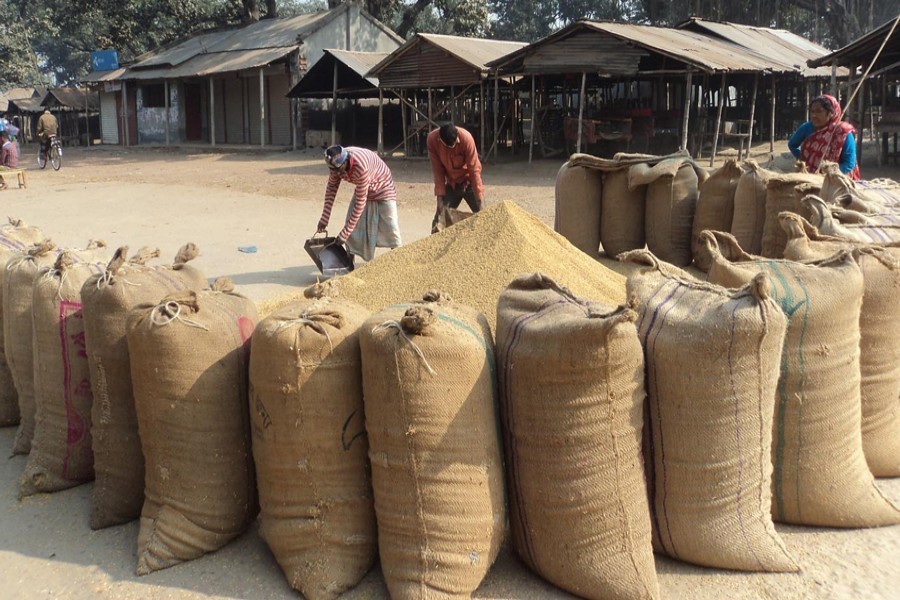That the government's rice procurement programme is benefitting the millers far more than the peasantry has been a recurrent allegation for many years now. The government, however, has preferred not to react to such a claim in public.
A recent study, commissioned by the Ministry of Agriculture and carried out by the International Food Policy Research Institute (IFPRI), has found the allegation to be true.
In fact, the study has revealed some hidden truths that should be enough for the government to redesign its food procurement policy aimed at benefitting none but millions of farmers across the country. The United States Agency for International Development (USAID) has funded the study.
The study was undertaken in the latter part of the last year to find out the reasons behind the prices of paddy falling abruptly during the harvest of Boro during 2018-19.
The study noted that in January last year the price of paddy was Tk 17.42 a kilogramme (kg) at the growers' level after the Aman harvest, but the price dropped by 22 per cent to Tk 13.56 a kg in May when farmers had pulled a bumper harvest of Boro. The price was well below the full cost (including imputed cost of family labour and land rent) of production of per kg of paddy. The study estimated the full cost of a kg of Boro paddy in 2018-19 at Tk 17.83. There was also media uproar over the falling post-harvest Boro prices at that time.
In fact, there are a number of reasons for Boro paddy prices remaining depressed in the event of a bumper harvest. The study has brought a few of these to the fore.
The MOA-IFPRI study does make it amply clear that the millers are the real beneficiaries of the procurement policy the government has been pursuing for many years. The policy is biased towards the millers, not the farming community.
However, not all farmers are equally affected by lower paddy prices; those owning small farmland holdings and the cash-lease tenant farmers are affected more than sharecroppers and marginal farmers. The latter groups usually do not sell much paddy in the market or to the government.
The study found that 80 per cent of the government's procurement of Boro in 2018-19 came in the form of rice and millers made available the entire quantity. The rest came from farmers in the form of paddy.
The story does not end there. Millers are too cunning to reap benefits in addition to what they get from the price support meant for farmers. More than 94 per cent of rice, the study mentioned, millers had made available to the government in 2018-19 Boro season was of 'hybrid' variety, which was 25 per cent cheaper than high yielding variety (HYV) rice. Hybrid rice accounted for 18 per cent of Boro production in 2018-19. This variety of rice is of inferior quality and it is least liked by consumers.
There is no denying that the public food procurement programme does leave an impact on the post-harvest market prices of paddy notwithstanding the fact that the government collects a very small quantity of paddy from farmers.
The study has calculated that had the directorate general of food fulfilled its procurement target only by purchasing paddy in 2019 Boro season, the market price of paddy would have gone up by 45 per cent. The procurement in larger quantity would have raised the price of paddy even to a higher level. The government, thus, might think of procuring paddy only to help offer better prices to farmers.
However, processing of paddy and other issues are involved with such procurement. Yet those could be resolved using the services of millers. The study has also made a review of the public procurement system followed in the neighbouring Indian state of West Bengal and suggested how best it can be replicated in Bangladesh situation.
The moot issue here is that the government's food procurement programme needs a thorough review with a view to offering farmers the best possible price support. The benefits rice millers and other middlemen have been reaping for years should go to farmers, none else.


